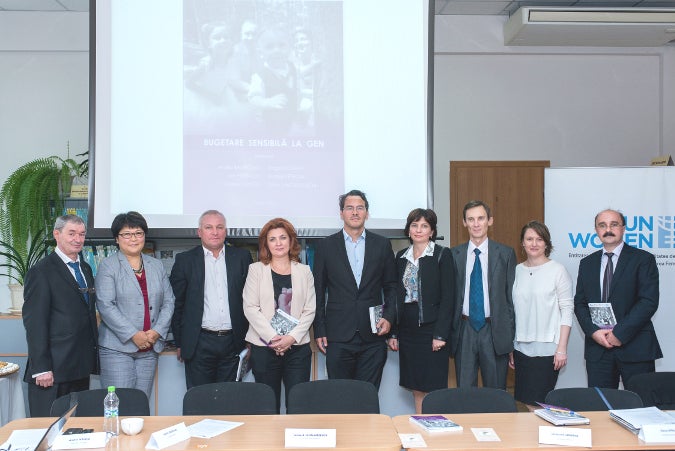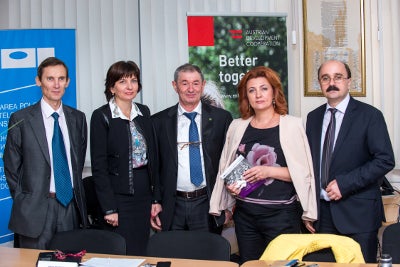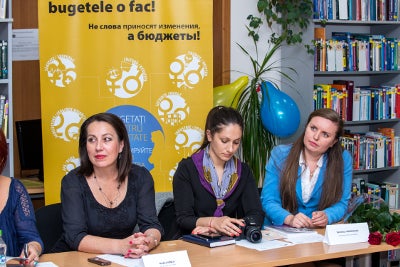Moldova university's gender-responsive budgeting course is a first in South East Europe
Academic and gov’t experts say new mandatory gender-responsive budgeting course will make country more competitive internationally and help it promote gender-sensitive policies.Date:

Moldova is the first country in South East Europe to introduce a gender-responsive budgeting course into its university curriculum. Students from the Academy of Economic Studies of Moldova (ASEM) will take the new mandatory class as part of the Masters’ programmes in both Public Finance and Taxation, and Accounting and Audit in Public Institutions.
Gender-responsive budgeting – also called inclusive or social budgeting – is a human rights, diversity and social equity-based innovative public policy tool that comprehensively analysing government budgets to ensure that national commitments to gender equality and women’s empowerment are adequately funded.

The gender-responsive budgeting course and a related textbook were developed and included in the university curriculum as part of a UN Women partnership to promote gender-responsive policies in South East Europe, supported in Moldova by the Austrian Development Cooperation (ADC).
Associate Professor Andrei Petroia, of ASEM’s Finance and Insurance Department, coordinated the initiative.He says that an important change occurred whenMoldovan professors exchanged knowledge and experiences with peers from Russia, Kazakhstan, Albania, Macedonia and other South-East European countries.
“I can proudly say that in Moldova we are the only ones to introduce gender responsive budgeting in our academic curriculum, as a way to prepare future public servants.Our new textbook is of major importance.Compared to previous editions, we now cover in greater depth gender equality, women's human rights, and gender-responsive budgeting,” says Prof. Petroia.

Maria Chitanu, a student at the Academy of Economic Studies of Moldova, has researched the pay gap between women and men in Moldova. Her findings indicate that the greatest inequalities are in the pensions paid to men and women, the unequal distribution of salaries, and in maternity or parental leave. She believes that maternity leave should be shortened from the current three years, with better pay more equally shared with fathers, and that adjusting the quality of national education to European standards will require integrating the gender dimension in education.
The new course will be useful for master’s students and for Moldova, says Ms Chitanu: “In time, it will make our country more competitive internationally, because the state will no longer allow the potential of one gender to be systematically undervalued.”
“The publication of the new textbook on gender sensitive budgeting will contribute to the training of experts and later help them to promote gender sensitive policies,” says Ms. Lilia Pascal, Head of the Department for Policy on Ensuring Equality Between Women and Men, Ministry of Labour, Social Protection and Family.

Veronica Vragaleva, Deputy Minister of Finance, noted that the new textbook will also interest civil servants: "This textbook on gender-responsive budgeting is intended for students, but it certainly will be seen on the desks of civil servants.”
“With a separate course on gender-responsive budgeting and mainstreaming gender in other parts of the academic curriculum, ASEM is creating a new generation of specialists in gender equality and gender responsive budgeting. This will further facilitate the understanding of gender issues by the authorities and the general public, and will also support the Government in implementing its commitments for equality between women and men in Moldova,” said Ms. Elena Spinu, local coordinator within the UN Women Regional Programme, Promoting Gender Responsive Policies In South East Europe And The Republic Of Moldova.